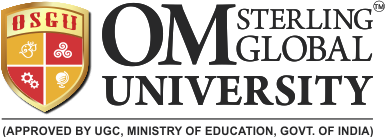The field of pharmaceutical chemistry plays a crucial role in the development and formulation of drugs that improve health outcomes. As the pharmaceutical industry continues to evolve, so do the educational pathways that prepare students for careers in this dynamic sector. One such pathway is the Bachelor of Vocational (B.Voc) in Pharmaceutical Chemistry, which offers distinct advantages compared to traditional degrees. This article explores how the B.Voc in Pharmaceutical Chemistry differs from conventional programs, particularly in terms of curriculum, practical training, and career readiness.
Curriculum Focus
One of the most significant differences between a B.Voc in Pharmaceutical Chemistry and a traditional pharmaceutical chemistry degree lies in the curriculum's focus. Traditional degrees often emphasize theoretical concepts and foundational sciences, such as organic and inorganic chemistry, biochemistry, and pharmacology. While these subjects are essential, they may not always translate directly into practical skills required in the workforce.
In contrast, the B.Voc in Pharmaceutical Chemistry is designed to be application-oriented, integrating essential theoretical knowledge with hands-on experience. This program includes specialized courses on drug design, formulation technology, quality assurance, and regulatory practices, ensuring that students are well-versed in both the scientific and practical aspects of pharmaceutical development.
Emphasis on Practical Training
Another defining characteristic of the B.Voc in Pharmaceutical Chemistry is its emphasis on practical training. Students enrolled in this program are given ample opportunities to engage in laboratory work, industry internships, and project-based learning. This experiential approach allows students to apply their theoretical knowledge in real-world settings, honing their skills in drug formulation and analysis.
At institutions like OSGU Vocational, the practical components of the B.Voc program are integrated throughout the curriculum, with lab sessions accompanying theoretical lectures. Students learn to use industry-standard equipment and techniques, such as high-performance liquid chromatography (HPLC) and mass spectrometry, which are essential for quality control and research in pharmaceutical settings.
Industry Collaboration
The B.Voc in Pharmaceutical Chemistry often features strong partnerships with pharmaceutical companies and research institutions. These collaborations provide students with unique opportunities for internships, co-op placements, and exposure to current industry practices. Such experiences not only enhance students' resumes but also facilitate networking opportunities that can lead to job offers post-graduation.
In contrast, traditional degree programs may have limited engagement with industry partners, focusing primarily on academic research. While academic research is valuable, the direct application of knowledge gained in a vocational program often leads to a more immediate impact on students’ employability.
Read Also: How Does Technology Impact Medical Imaging Studies in a B. Voc Program?
Career Readiness
The B.Voc in Pharmaceutical Chemistry is specifically designed to prepare graduates for immediate entry into the workforce. The program's practical training, combined with its focus on industry-relevant skills, means that graduates are job-ready upon completion. This vocational approach appeals to employers who are looking for candidates who can contribute effectively from day one.
In traditional degree programs, graduates may find that their academic training is not as closely aligned with the specific skills demanded by employers in the pharmaceutical industry. While they possess a solid theoretical foundation, they might require additional training or experience before they can work independently in a laboratory or research environment.
Flexibility and Accessibility
The B.Voc in Pharmaceutical Chemistry is often designed with flexibility in mind, making it more accessible for a diverse range of students. Many vocational programs offer part-time options or evening classes, accommodating those who may be balancing work or family commitments. This accessibility can attract non-traditional students who are seeking to enter or transition into the pharmaceutical field.
Traditional degree programs, on the other hand, may have more rigid structures and schedules, which can be a barrier for some potential students.
Lifelong Learning and Professional Development
A significant benefit of pursuing a B.Voc in Pharmaceutical Chemistry is the emphasis on lifelong learning and professional development. The program encourages students to engage in continuous education, whether through additional certifications, workshops, or advanced studies. This focus on lifelong learning is crucial in an industry that is constantly evolving due to advancements in technology and scientific research.
While traditional degrees also promote professional development, the practical nature of the B.Voc program makes it particularly well-suited for students who wish to stay updated on the latest industry trends and practices.
Conclusion
In summary, the B.Voc in Pharmaceutical Chemistry offers a distinct alternative to traditional pharmaceutical chemistry degrees. With its focus on practical training, industry collaboration, and immediate career readiness, this program equips students with the skills and knowledge necessary to thrive in the fast-paced pharmaceutical sector. By choosing a B.Voc in Pharmaceutical Chemistry, students can enjoy a comprehensive educational experience that prepares them not only for their first job but for a successful career in the field. As the pharmaceutical industry continues to grow, vocational programs like this play an essential role in shaping the next generation of skilled professionals.

